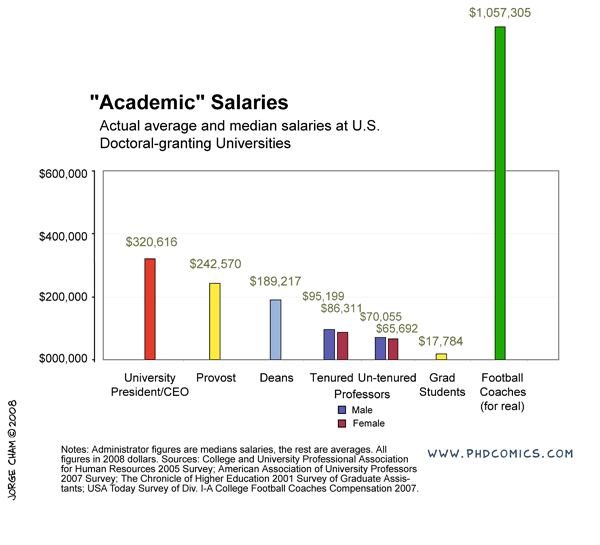Who needs a PhD?
I mean, it would be nice to have those letters behind my name. It would be nice to indicate that I possessed the drive to become a Doctor of Philosophy about a particular subject. In my case, I imagine, history would have to be the area I would focus. I do have a Clemson University approved Masters degree in that subject. I'll admit, pursuing the advanced degree has called to me on several occasions and it has been fairly difficult to think of reasons not to do it. My wife jokes that I would be a professional student if I could. If I could just find someone to pay me to take university courses - now that would be a dream job, I think.
But I do come back to the question over time, do I need a PhD? What benefit would it give me in my current, or future endeavors? I am no longer a full-time faculty member of the school I had taught at since graduation from the University of TN in Chattanooga. I have resigned myself to the proposition that neither that school, nor any other than I would wish to teach at, could afford me the luxury of supporting my family on salary alone. That is simply a fact of private education.
What is a PhD?
A PhD, or Doctor of Philosophy, is a post-graduate degree indicating a love of the subject matter one chooses to pursue and a desire to better oneself personally and professionally. Originally, it came in to existence as part of the Liberal Arts, as can be seen here. However, today you can be awarded a PhD, or doctorate, of just about any discipline (e.g. Physics, Biology, Economics, Marketing, etc.).
How do you get one?
The PhD would traditionally be obtained through more coursework at the post-graduate level and intense, focused research on a specific topic about which a book-length essay, called a dissertation, would be written, presented, and then defended before a panel of peers. It would take a full-time student two years, at minimum, to complete this process, at least in the Liberal Arts subjects I am familiar with. I cannot pretend to speak for scientific or other fields. A PhD from Vanderbilt University, a place I have considered for further studies, would require 72 hours of graduate work, of which 24 semester hours would be in formal courses.1 This would run, as of today, $125,784 just in the fees for the courses. There is no way I could justify spending that. I know that there would be options of financial aid along the way that may offset a great amount of this, but it just isn't possible given my personal situation. For one thing, I would never receive a satisfactory return on that investment. While being a comic, the October 20, 2008 PhD Comics image relied on real documented sources to show what academic salaries look like.2
As you can see, professors don't make a ton, and with other life expenses it would take about three generations to pay off the mortgage that would be a school bill for a PhD.
I'm not whining
I know it sounds like it, but really I'm just establishing data that helped me mentally get to my real point. It isn't anyone's fault that I have made the educational, financial, and personal choices that I have. Well, I mean, it is my fault, not some external person coercing me into it. So I'm not whining about this, but rather establishing the rules of the system so I can work around it.
A Plan
Given the realities documented above and the desire that I truly have to continue to better myself as a person, I have developed a plan to get an "unofficial PhD" in Western culture. Working off of my recent posts on Hutchins's Great Conversation essay for the Great Books of the Western World, I have decided to modify slightly and follow a reading plan over the next several years (likely ten) and read the list offered by Hutchins and Adler.
I'm gong to start by finishing Hutchins's essay on the Great Conversation and then begin with Plato as suggested in the reading list. I hope to blog my way through each book, or excerpt, with impressions and thoughts. I will try to be as applicable as possible to the world we live in now. I learn best that way and I imagine others do as well.


No comments:
Post a Comment